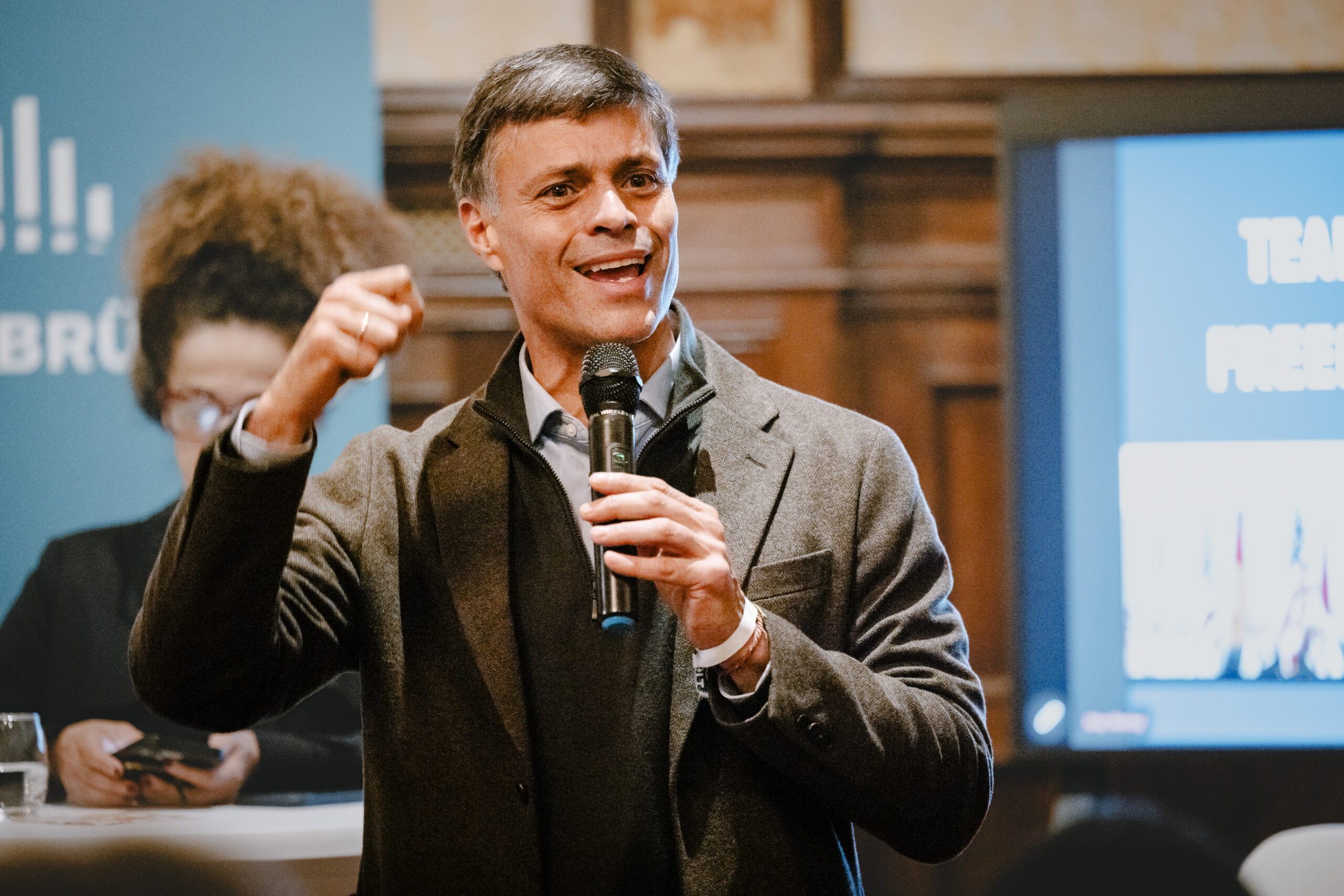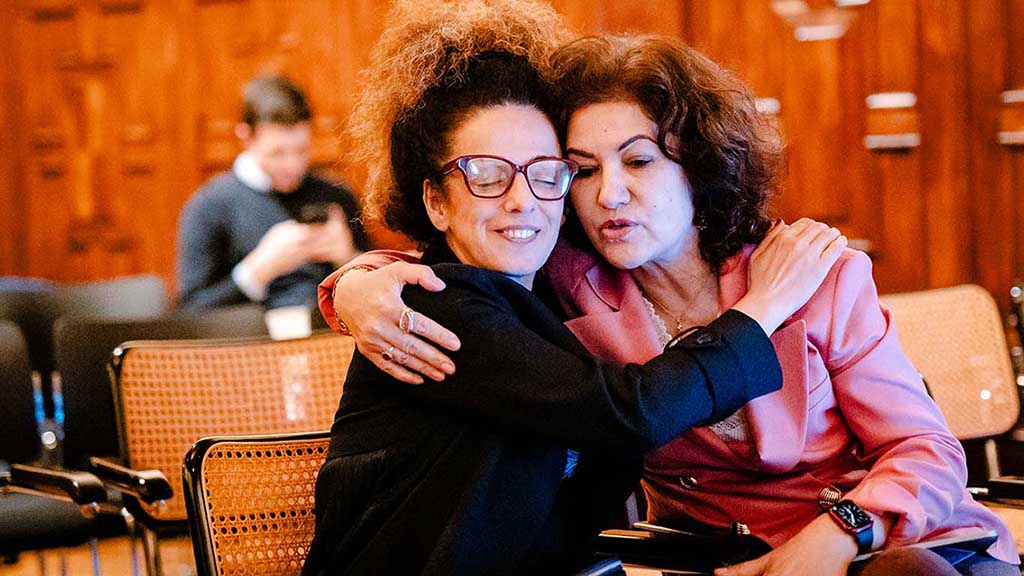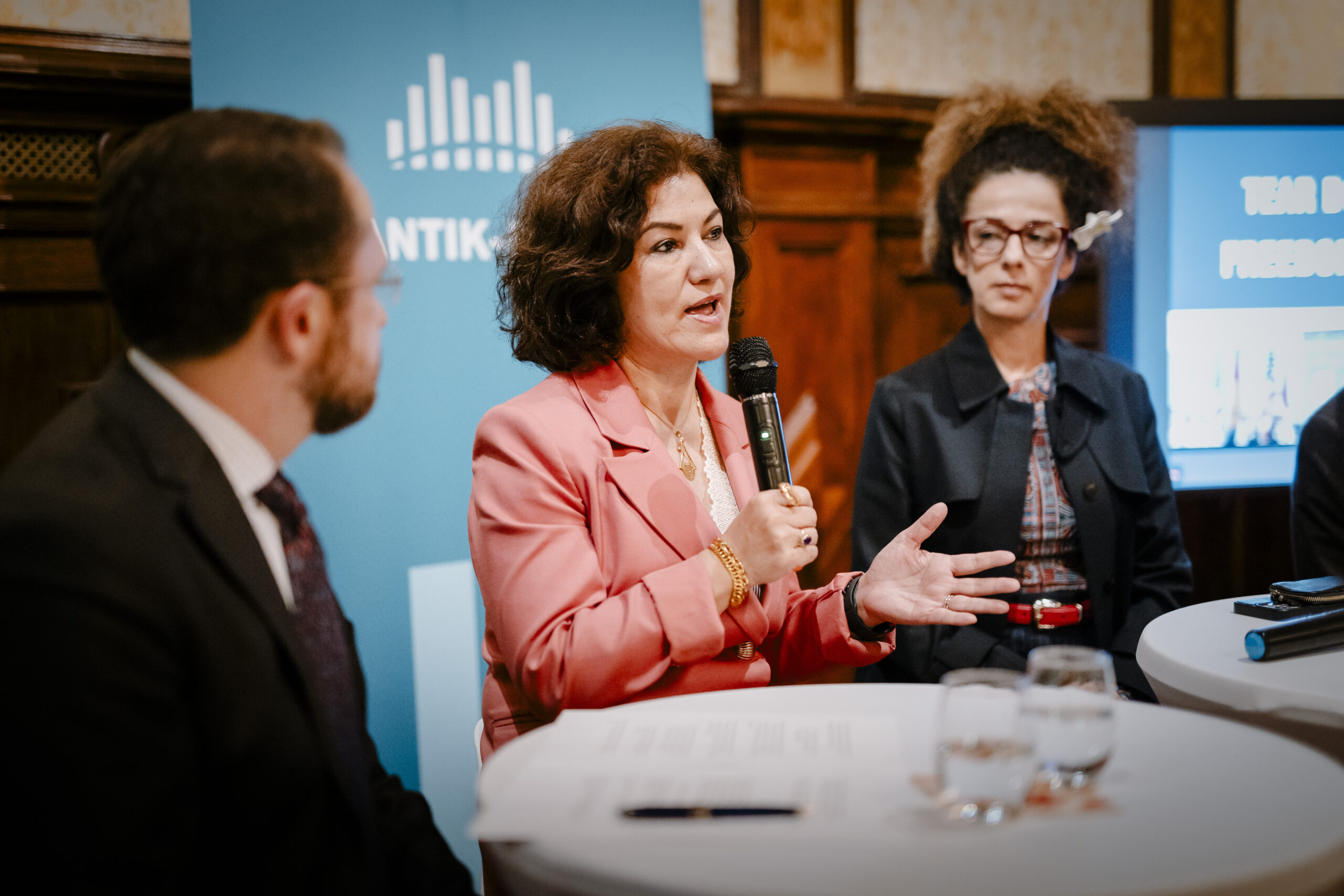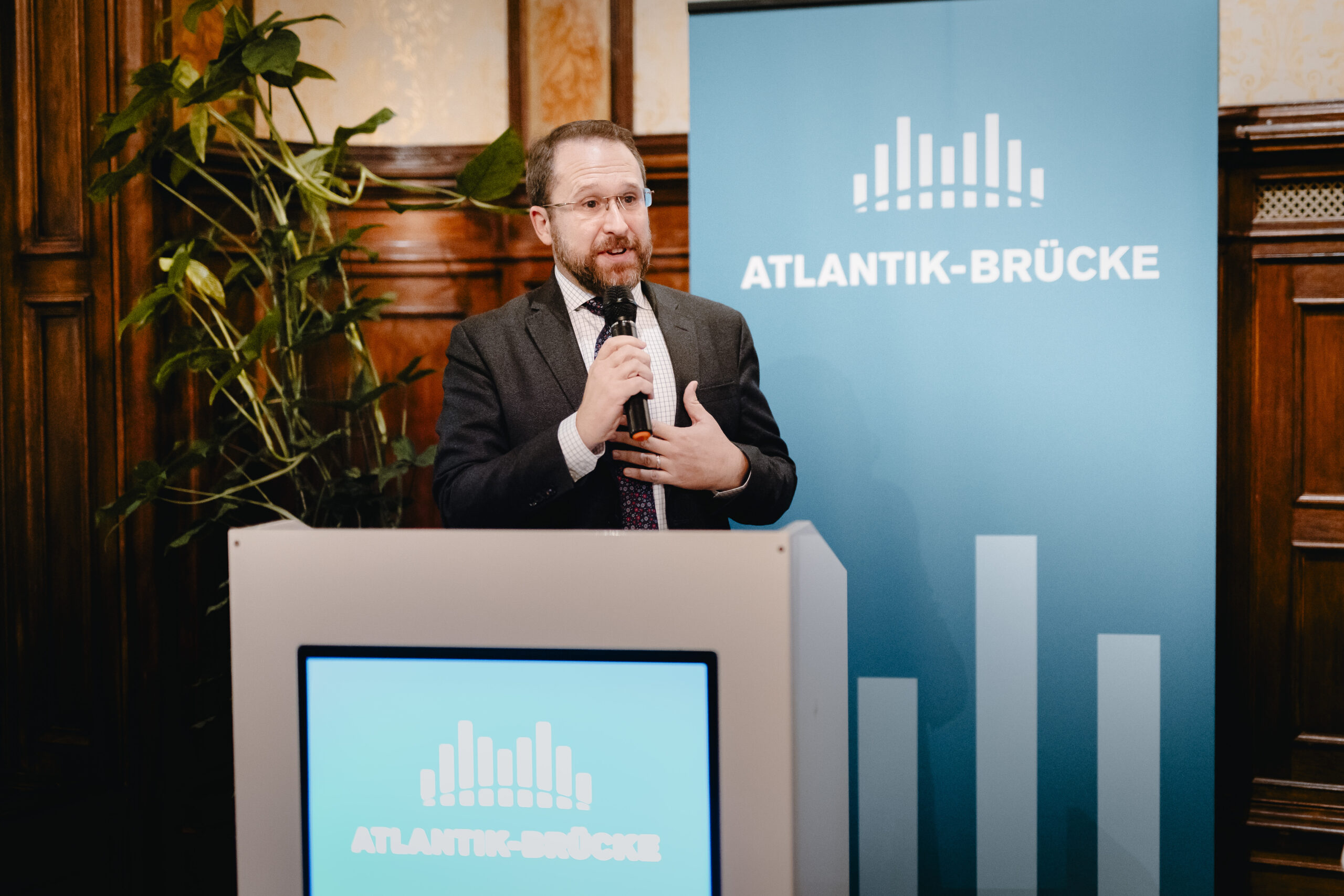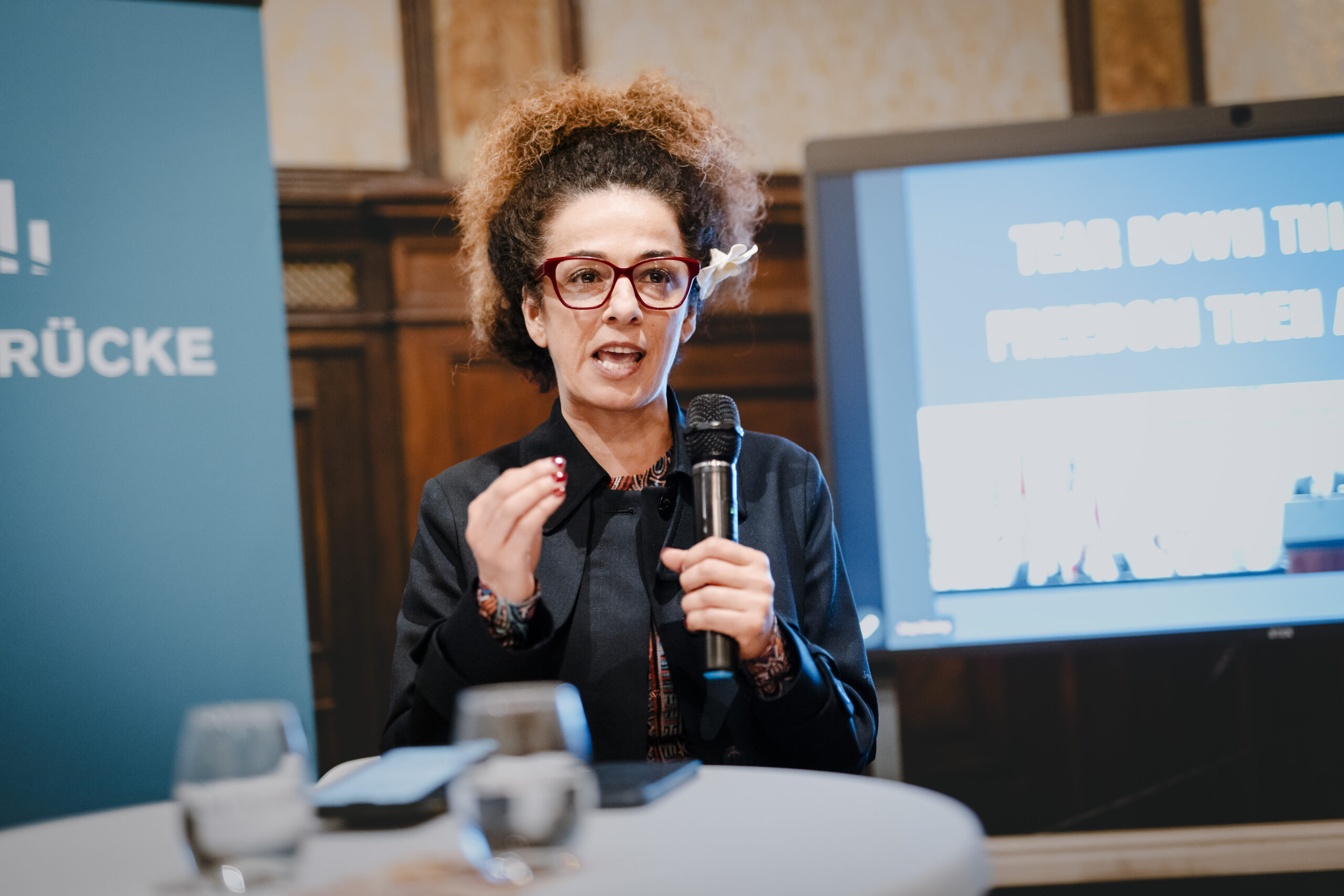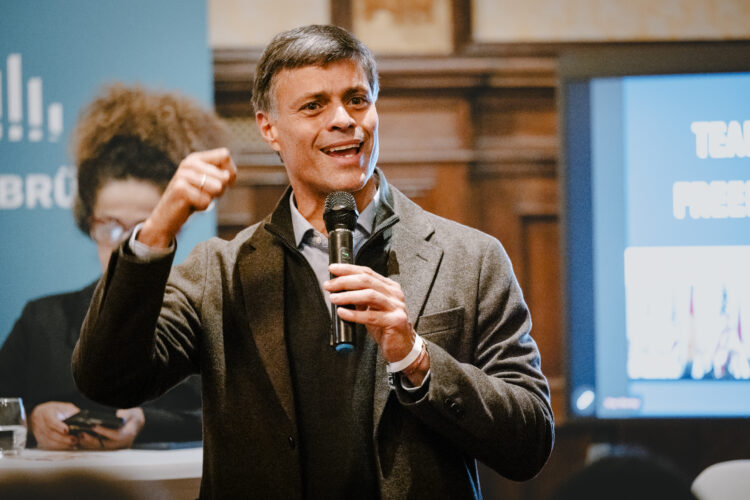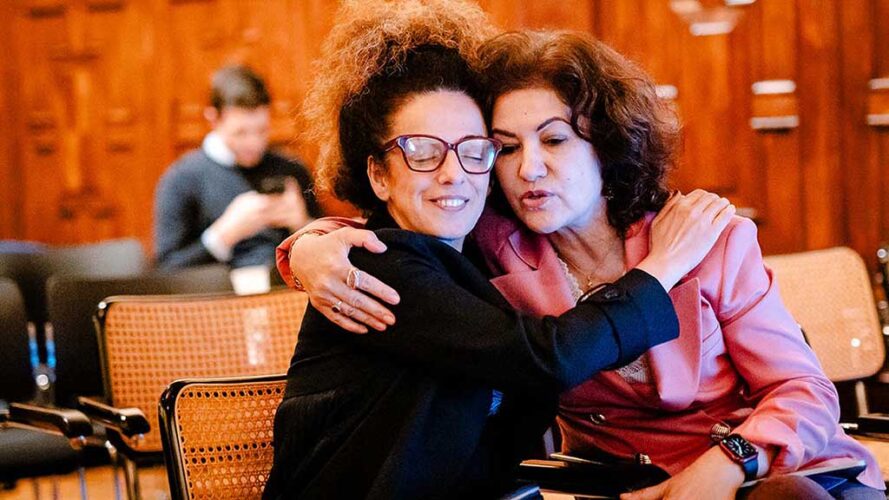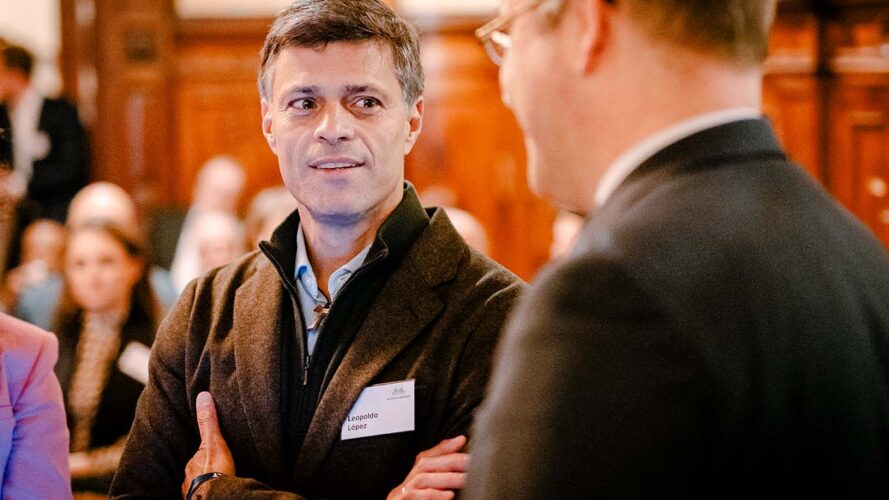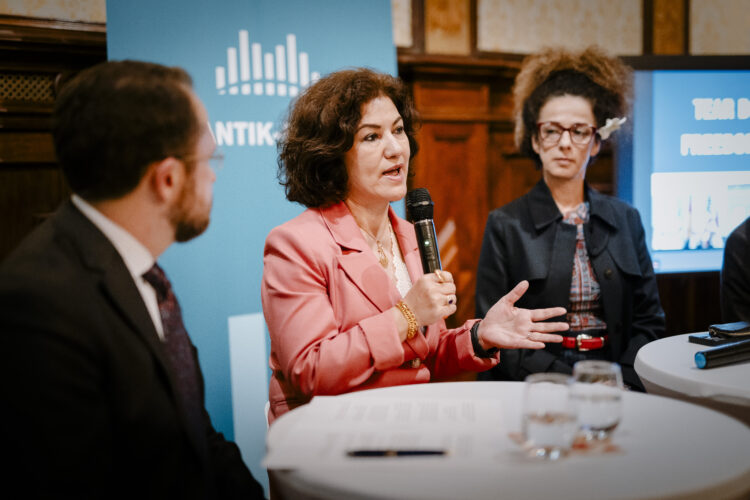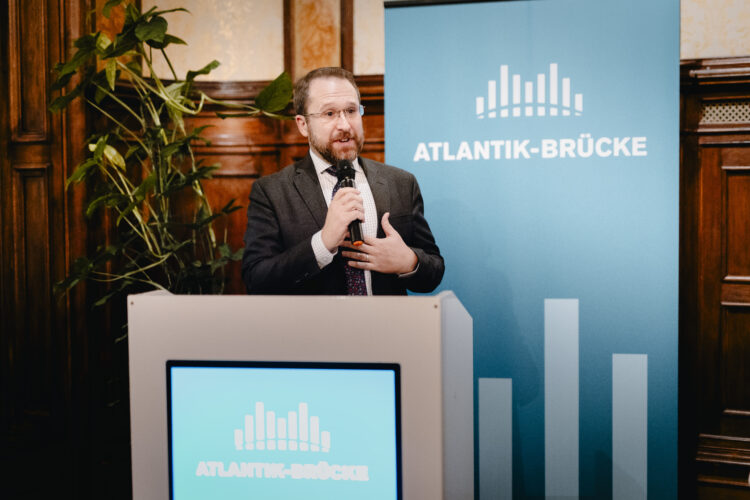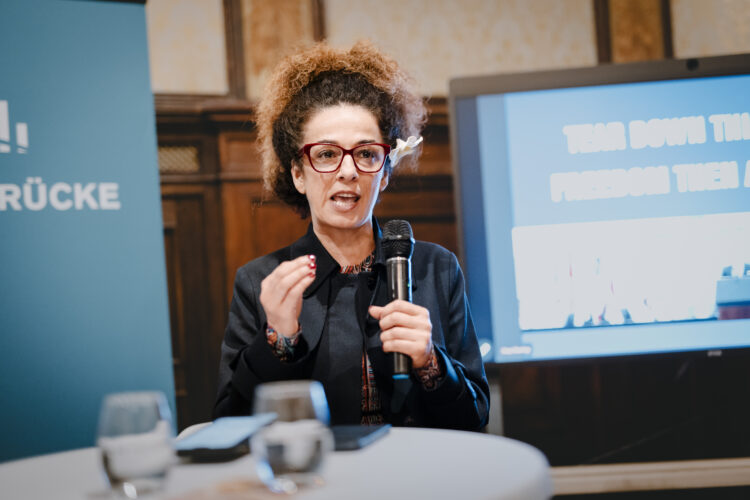Move the world towards freedom
At the Brandenburg Gate, President Reagan’s 1987 call to “tear down this wall” captured the universal aspiration for freedom. While the physical wall that once divided Berlin has long vanished, a metaphorical one now divides the world between freedom and autocracy. Around the world, Berlin and the United States continue to stand as symbols of freedom, uniting people in their struggle against oppression. In honour of this shared commitment, the Atlantik-Brücke brought together leading global voices of freedom, as well as representatives from the US and the city of Berlin, at the Berlin Freedom Week on 11 November 2025. Together, they reflected on the past and explored the meaning of liberty today.
We were delighted to welcome the following speakers:
- Rushan Abbas, Uyghur American activist and Chairwoman, Campaign for the Uyghurs
- Masih Alinejad, Iranian women’s rights activist and President & Co-Founder, World Liberty Congress
- Leopoldo Lopez, Venezuelan opposition leader and Secretary General & Co-Founder, World Liberty Congress
- Daniel Rothschild, Director of the Center for Civics, Education, and Opportunity, Ronald Reagan Institute
- Florian Hauer, State Secretary for Federal, European and International Affairs, Senate Chancellery of Berlin
Read Daniel Rothschild’s keynote speech here:
Three months after Natan Sharansky was freed from the gulag in 1986, he paid a visit to President Reagan at the White House. The president had long advocated with the Soviet leadership for the release of Sharansky, as well as other refuseniks and religious minorities held captive within the Soviet Union. Somewhat to President Reagan’s surprise, he learned that Sharansky and other dissidents in Soviet prisons knew in real time about his 1983 speech where he called the Soviet Union an “evil empire” and “the focus of evil in the modern world.” Soviet news agencies reported on the speech in a way designed to inflame public tensions against the United States and rally public opinion to the side of the regime. A jailer gave Sharansky a copy of the edition of Pravda with the coverage on the front page. It had the opposite of the intended effect.
“By tapping on walls and talking through toilets,” Sharansky later recalled, “Word of Reagan’s ‘provocation’ quickly spread throughout the prison. We dissidents were ecstatic. Finally, the leader of the free world had spoken the truth.” Reagan was thrilled to learn this. The evening of their meeting, he wrote in his diary: “Met with Anatoly Sharansky. It was fascinating to hear the story of his imprisonment by the Soviets. “I learned that I’m a hero in the Soviet Gulag. The prisoners read the attacks on me in TASS and Pravda and learn what I’m saying about the Soviets and they like me.” President Reagan knew that words mattered. He knew that presidential rhetoric mattered. He knew that moral clarity mattered. He knew that what a president says—or does not say—doesn’t just move markets: It could move the world to freedom.
Another president, Theodore Roosevelt, famously referred to the presidency as a “bully pulpit,” a venue to use rhetoric to advance an agenda and a view of the world. President Reagan knew that the power of the presidency, especially in the age of mass media and global telecommunications, was not merely found in the powers granted the office by the U.S. Constitution. And so he used that power, that bully pulpit, to advance the cause of freedom around the globe. It was that moral clarity that led to the Brandenburg Gate speech, and what historian William Inboden calls “the most famous four words of the Cold War.”
In writing that address, the speechwriting personnel in the White House and the leadership at the State Department came to an impasse: the diplomats wanted a reserved message, and the speechwriters wanted a broadside against the Soviets. Diplomats dismissed early drafts as “sentimental fluff” with too much “good-guys versus bad-guys.” Drafts flew back and forth up until shortly before the president left for Berlin. President Reagan settled the dispute by telling his team, “That passage about tearing down the wall. That’s what I want to say to the people on the other side.”
The President knew how this message would land. In the car on the way to the Brandenburg Gate, he told his deputy chief of staff, “The boys at State are going to kill me. But it’s the right thing to do.” President Reagan knew his audience wasn’t just the crowd assembled to hear him speak. He had been told that the speech would be broadcast and, depending on if weather conditions were favorable to signal propagation, might be heard as far east as Moscow.
“Tear down this wall” was more than a mere rhetorical flourish. It was a statement of American policy: that America would not seek peace with totalitarianism, America would seek its end.
Reagan knew from Sharansky that his speeches were heard in the gulags. And he knew that he would be speaking not just to those in front of the wall, but those behind it in the GDR, Poland, Czechoslovakia, and even the USSR itself. “Tear down this wall” was more than a mere rhetorical flourish. It was a statement of American policy: that America would not seek peace with totalitarianism, America would seek its end. Within three years, the wall that President Reagan called “as ugly as the idea behind it” had been torn down.
Today, Western societies, including the United States, are beset with a new moral relativism that denies the universalism of human freedom. This view, long associated primarily with the politics of the left, today infects parties and people of both the left and the right. Unfortunately, too many so-called leaders treat relativism as a sophisticated position, or suggest that certainty about moral claims implies certitude about strategic or tactical considerations. They imply, or even directly claim, that moral clarity implies strategic naiveté. When presented with political imprisonment, hostage taking, and ethnic or gender repression, they equivocate.
President Reagan shows that one can have a strong moral compass—a clear sense of right and wrong—but not deny the shades of gray in the world. Throughout his presidency, he faced many questions where there was significant moral and strategic nuance. But he never lost sight of the fact of good and evil in the world—and he never lost the ability to call out the latter for what it was.
Let me close on a note of optimism. As President Reagan predicted in his 1982 address to the British Parliament, Marxism-Leninism today lies “on the ash-heap of history” along with other “tyrannies which stifle the freedom and muzzle the self-expression of the people.” And as these totalitarian “isms” have fallen one by one, there have been no new all-encompassing competing worldviews to take their place. Most of today’s “new bad ideas” are in fact “old bad ideas.”
Call evil by its name, support dissidents, and speak so the imprisoned can hear.
Communism, Nazism, fascism, and religious totalitarianism still have their redoubts—and if we are honest, they are growing in size. But a quarter of the way into the twenty-first century, there have been no new grand ideological innovations with the power to intoxicate. Our charge is to reclaim the moral high ground for freedom—and to use it: call evil by its name, support dissidents, and speak so the imprisoned can hear.
As Peter Robinson, the author of those famous four words, noted in his back-and-forth with the State Department, it was not enough for the president to say, “One day, this ugly wall will disappear.” The Berlin Wall wouldn’t just fall on its own. It had to be torn down. It was. And it was helped in that process by an American president willing to say to his Soviet counterpart, “Öffnen Sie dieses Tor! Reißen Sie diese Mauer nieder!”

